Center for Communicable Disease Dynamics
The Center for Communicable Disease Dynamics works to improve methods for infectious disease modeling and statistical analysis, quantify disease and intervention impact, engage with policymakers to enhance decision-making, and train the next generation of scientists.
677 Huntington Avenue
Kresge Building, Suite 506
Boston, MA 02115
2025 Mathematical Modeling and Public Health Workshop
Agenda
March 3-4, 2025 | The Inn at Longwood Medical, 342 Longwood Ave., Boston, MA 02115
Speakers will share their own perspectives; they do not speak for Harvard.
8:00 – 8:40 AM: Arrival & Breakfast
8:40 – 8:45 AM: Welcome & Opening Remarks by Yonatan Grad, MD, PhD, Professor of Immunology and Infectious Diseases, and Faculty at the Center for Communicable Disease Dynamics, Harvard Chan School
8:45 – 9:15 AM: Group Introductions & Icebreaker Activity by Abby Campbell Wong and Caroline Thomas
9:15 – 10:15 AM: Keynote Speech (remote) by Lauren Ancel Meyers, PhD, Professor of Integrative Biology & Statistics and Data Science, University of Texas at Austin
10:15 – 10:30 AM: Break
10:30 – 11:30 AM: Lecture 1: Introduction to SIR Modeling (remote) by Kirstin Roster, PhD, Postdoctoral Research Fellow, Center for Communicable Disease Dynamics, Harvard Chan School
11:30 AM- 12:30 PM: Breakout Session 1: Intro to SIR Modeling in R by Domonique Reed, PhD, Postdoctoral Research Fellow, Center for Communicable Disease Dynamics, Harvard Chan School and Léa Cavalli & Beau Schaeffer, SM, both PhD students in Infectious Disease Epidemiology, Center for Communicable Disease Dynamics, Harvard Chan School
12:30 – 1:30 PM: Lunch & Networking
1:30 – 2:30 PM: Lecture 2- Antimicrobial Resistance by Marc Lipsitch, DPhil, Professor of Epidemiology, and Director of the Center for Communicable Disease Dynamics, Harvard Chan School
2:30 – 3:30 PM: Breakout Session 2: Hospital Outbreak using Genomics by Mui Pham, PhD, Postdoctoral Research Fellow, Center for Communicable Disease Dynamics, Harvard Chan School, and Indra Gonzalez Ojeda, PhD student in Biophysics, Center for Communicable Disease Dynamics, Harvard Chan School
3:30 – 4:00 PM: Break
4:00 – 5:00 PM: Science Communication Lecture by C. Brandon Ogbunu, PhD, Assistant Professor in the Department of Ecology and Evolutionary Biology at Yale University, and External Professor at the Santa Fe Institute
5:00-6:00 PM: Break
6:00 PM: Networking Dinner
8:00 – 8:30 AM: Arrival & Breakfast
8:30 – 9:30 AM: Lecture 3- Infectious Disease and Climate Change by Caroline Buckee, DPhil, Professor of Epidemiology, and Faculty at the Center for Communicable Disease Dynamics, Harvard Chan School
9:30 – 10:30 AM: Breakout Session 3: Outbreak Scenario by Ruchita Balasubramanian, MPhil, PhD student in Population Health Sciences- Infectious Disease Epidemiology, Center for Communicable Disease Dynamics, Harvard Chan School and Indra Gonzalez Ojeda, PhD student in Biophysics, Center for Communicable Disease Dynamics, Harvard Chan School
10:30 – 11:00 AM: Break
11:00 AM – 12:00 PM: Lecture 4- Machine Learning & Novel Data Sources by Mauricio Santillana, PhD, MSc, Professor of Physics, Professor of Electrical Engineering, Director of the Machine Intelligence Group for the betterment of Health and the Environment (MIGHTE) at Northeastern University; Adjunct Professor of Epidemiology, Faculty at the Center for Communicable Disease Dynamics, Harvard Chan School
12:00 – 1:30 PM: Group Photo, Lunch & Networking
1:30 – 2:30 PM: Breakout Session 4: Forecasting by Raúl Garrido, PhD student in Physics, Network Science Institute, Northeastern University and Julia Deichmann, PhD and Mui Pham, PhD, both Postdoctoral Research Fellows, Center for Communicable Disease Dynamics, Harvard Chan School
2:30 – 3:00 PM: Break
3:00 – 4:30 PM: Career Panel with speakers from industry, government and academia, moderated by Indra Gonzalez Ojeda, PhD student in Biophysics, Graduate School of Arts & Sciences, Center for Communicable Disease Dynamics Harvard Chan School
- Caroline Buckee, PhD, Professor of Epidemiology, and Faculty at the Center for Communicable Disease Dynamics, Harvard Chan School
- Katherine Budeski, MS, MSc, PhD student in Population Health Sciences- Infectious Disease Epidemiology, Center for Communicable Disease Dynamics, Harvard Chan School
- Lyn Finelli, PhD, Chief of Surveillance and Outbreak Response, Influenza Division, National Center for Immunization and Respiratory Diseases
- Gregg Gonsalves, PhD, Associate Professor of Epidemiology, Microbial Disease, Yale School of Public Health
- Katherine Hsu, MD, MPH, Professor of Pediatrics and Attending Physician in Pediatric Infectious Diseases at Boston Medical Center
- Jeff Imai-Eaton, PhD, Associate Professor of Epidemiology, and Faculty at the Center for Communicable Disease Dynamics, Harvard Chan School
4:30-4:35 PM: Closing Remarks by Marc Lipsitch, DPhil, Professor of Epidemiology, and Director of the Center for Communicable Disease Dynamics, Harvard Chan School
4:35-5:30 PM: Break
5:30 PM: Networking Dinner
Listed in order of appearance. Check back regularly as more bios will be added.

Yonatan Grad earned his MD and PhD at Harvard Medical School, trained in internal medicine at BWH and infectious diseases at BWH and Massachusetts General Hospital, and did his research fellowship in the CCDD with Marc Lipsitch. The Grad Lab investigates how pathogens evolve and spread using a combination of genomics, microbiology, mathematical modeling, and epidemiological tools, and includes projects studying outbreaks in collaboration with hospitals and public health institutions and the biology and epidemiology that underlies the emergence and spread of antibiotic resistance.

Lauren Ancel Meyers, MD, is a distinguished epidemiologist and data scientist, renowned for her expertise in pandemic modeling and the design of equitable strategies to combat infectious diseases. She holds a chaired professorship in integrative biology, statistics and data sciences, and population health at the University of Texas at Austin. As the Executive Director of the UT COVID-19 Modeling Consortium, Dr. Meyers led an international team in developing advanced forecasting tools, designing effective mitigation strategies, and advising global health authorities, including the WHO, CDC, and policymakers worldwide. Today, she directs a $30 million CDC-funded initiative aimed at modernizing the nation’s outbreak forecasting infrastructure. Dr. Meyers is the president and co-founder of the Center for Advanced Pathogen Threat and Response Simulation (CAPTRS), a nonprofit leveraging serious gaming to revolutionize the science and practice of pandemic preparedness. She also chairs the CDC’s Board of Scientific Counselors for Infectious Diseases and serves on the Harvard University Board of Overseers. Through her scholarly publications, public lectures, and media engagements, Dr. Meyers bridges the gap between science and society, fostering collaboration and informed decision-making. As a dedicated educator, she empowers students to address global health challenges ethically and effectively.
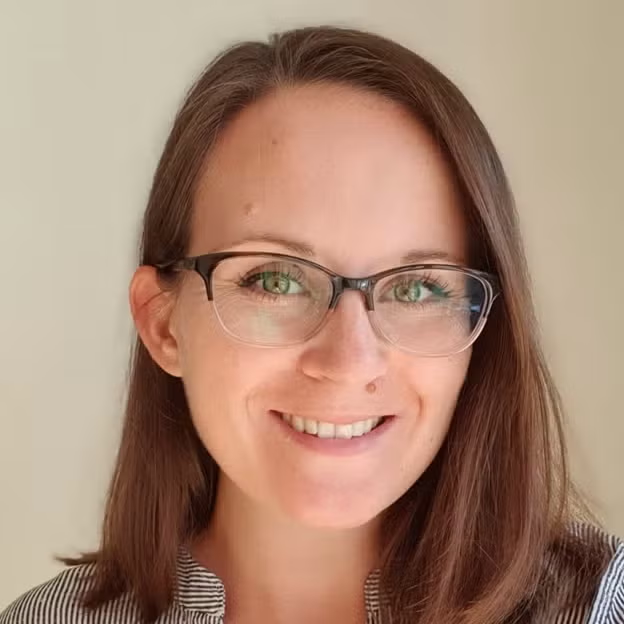
Kirstin Roster is a postdoctoral fellow in the lab of Yonatan Grad, where she develops mathematical and statistical models of infectious disease transmission and genomic surveillance strategies. She holds a PhD in Computational Mathematics from the University of São Paulo, an MPP from Georgetown University, and a BSc in Mathematics and Philosophy from the University of York. Prior to her PhD studies, Kirstin was a data scientist at the World Bank Group and has worked on international development projects in Latin America, Sub-Saharan Africa, and Asia.

Domonique Reed received a PhD in Epidemiology from Columbia University. Domonique’s research primarily focuses on understanding the impact of interpersonal relationships on risk behaviors and engagement in HIV prevention services for adolescent girls and young women. Her dissertation research, titled “Moving Beyond the Individual: A Data-driven Approach to Assessing the Multi-level Determinants of HIV among Adolescent Girls and Young Women in Sub-Saharan Africa” was a multi-pronged study that applied novel data science methods to better understand the multi-level drivers of HIV risk in this vulnerable population. As a Yerby Fellow, she will be mentored by Dr. Jeffrey Imai-Eaton and will expand on her work in data integration to characterize gaps in sub-Saharan African populations that are missing from HIV programming that go beyond standard demographic stratification, such as age and sex. In her free time, she enjoys long distance running, traveling, and spending time with family.

Beau Schaeffer is a third-year PhD student studying infectious disease epidemiology under the mentorship of Dr. Bill Hanage. He holds a BS in Microbiology from The University of Alabama and an SM in Epidemiology from Harvard Chan School. Currently, his research interests include exploring pathogen evolution at the within-host and population level as well as applying causal inference methods to infectious disease problems.
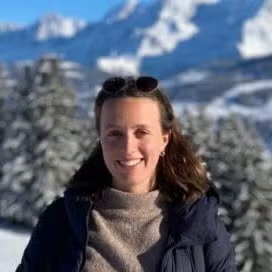
Léa Cavalli is a 4th Year PhD student in Infectious Disease Epidemiology at the Harvard School of Public Health. Her advisor is Dr. William Hanage and her research focuses on leveraging genomic data to understand ecology and evolution of pathogens, notably in response to clinical interventions.

Marc Lipsitch is Professor of Epidemiology and founding Director of the Center for Communicable Disease Dynamics at Harvard TH Chan School of Public Health. He is on loan to CDC where he is Director of Science for the Center for Forecasting and Outbreak Analytics. His research focuses broadly on the impact of medical and public health interventions on pathogen populations and the consequences of these changes for human health. In particular his work has focused on pandemic preparedness and response, mathematical modeling of prevention trials, genomic epidemiology, and the sources of diversity in pathogen populations. Pathogens of specific interest include antimicrobial-resistant pathogens, Streptococcus pneumoniae, influenza, and SARS-CoV-2. On SARS-CoV-2, his work with CCDD and more recently CDC has included modeling of the epidemic trajectory, estimates of introduced cases by travelers, studies of clinical outcomes and severity, epidemiological and modeling methodology, vaccine allocation modeling, vaccine effectiveness studies, research ethics (related to human challenge trials), and other topics. He received a BA in philosophy from Yale and a DPhil in zoology from the University of Oxford, followed by postdoctoral work in biology at Emory University and a period as a visiting scientist at CDC, before joining Harvard Chan.

Indra Gonzalez Ojeda completed her Bachelor’s degree in Chemistry at the University of Puerto Rico Mayaguez, where she fell in love with applying quantitative frameworks to biological systems. This led her to start a PhD in Biophysics here at Harvard, with a special interest in microbial evolution and genomics. Outside of science, her hobbies include going outside to enjoy the warmth (when it exists) and complaining about the cold (when the warmth abandons us). She also likes spending time with her very chaotic cat named Psi.

Thi Mui Pham is a postdoctoral research fellow in the Lipsitch Lab and Grad Lab, interested in understanding driving factors in explaining infection and antimicrobial resistance trends. Her research focuses on defining these trends for health care-associated pathogens using data from the U.S. Veterans Health Administration and the Alberta Health Services in Canada, and developing mathematical models to study the relationship between antibiotic use and resistance. Mui studied mathematics at RWTH Aachen in Germany. She completed her PhD at the University Medical Center Utrecht in the Netherlands where she developed mathematical models to study the transmission dynamics of P. aeruginosa in intensive-care units. In addition, she evaluated the impact of various interventions on the transmission of SARS-CoV-2 in the community and in hospitals. Besides work, she enjoys rock climbing, hiking, and Lindy Hop dancing.
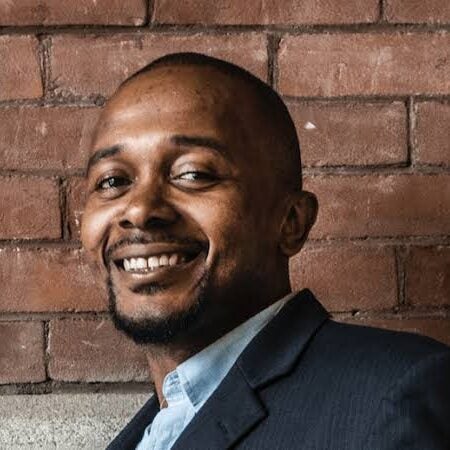
C. Brandon Ogbunu is an Assistant Professor in the Department of Ecology and Evolutionary Biology at Yale University, and an External Professor at the Santa Fe Institute. He is a computational biologist whose research investigates complex problems in epidemiology, biomedicine, genetics, and evolution. In addition, he operates a research program at the intersection between science, society, and culture. In this realm, he asks questions about the relationship between scientific discovery and social phenomena. He is currently a contributing writer at Quanta Magazine and WIRED, and has written for multiple other magazines, including Scientific American, Undark, and The Atlantic. He was featured on the Emmy Award-winning web series Finding Your Roots: The Seedlings, and has been featured in several other media venues, including WNYC”s RadioLab and MIT News.
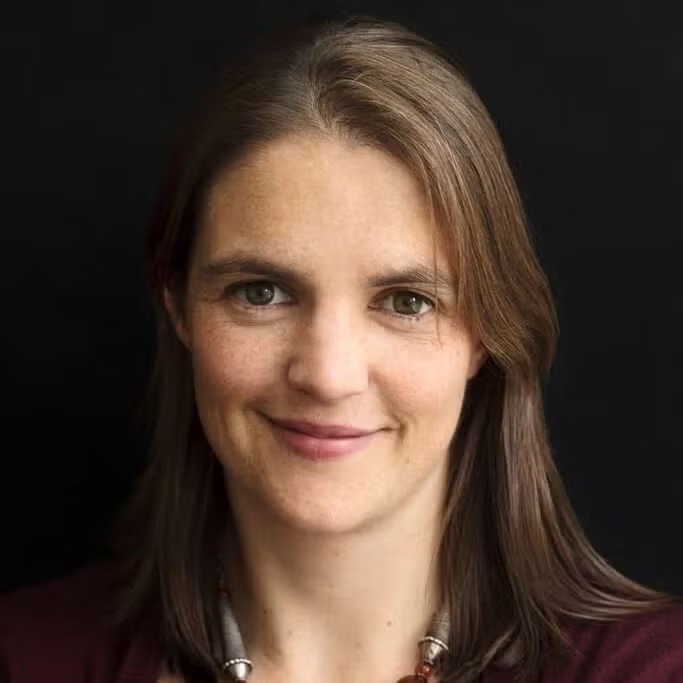
Caroline Buckee is a Professor of Epidemiology at Harvard T.H. Chan School of Public Health. Her work is focused on understanding the mechanisms driving the spread of infectious diseases that impact the most vulnerable populations worldwide, particularly malaria. Before coming to Harvard, Dr. Buckee completed a D.Phil. at the University of Oxford, and Omidyar and Wellcome Trust fellowships at the Santa Fe Institute and the Kenya Medical Research Institute, respectively, where she analyzed malaria parasite evolution and epidemiology. Dr. Buckee’s group uses a range of mathematical models, experimental and genomic data, and “Big Data” from mobile phones and satellites to understand how human pathogens spread and may be controlled. Her work has appeared in high profile scientific journals such as Science and PNAS, as well as being featured in the popular press, including CNN, The New Scientist, Voice of America, NPR, and ABC. Dr. Buckee was featured as one of MIT Tech Review’s 35 Innovators Under 35, a CNN Top 10: Thinker, and Foreign Policy Magazine’s 100 Global Thinkers.
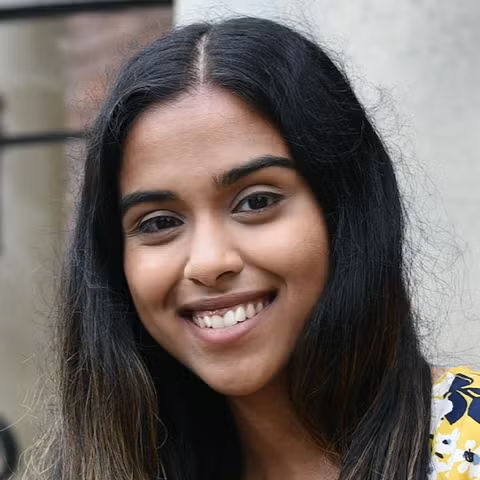
Ruchita Balasubramanian is a PhD student in Population Health Sciences concentrating in infectious disease epidemiology, advised by Dr. Bill Hanage. She graduated from Princeton University in 2019 with a degree in Molecular Biology and minors in Engineering Biology and Global Health and Health Policy, and additionally received an MPhil in Veterinary Sciences from the University of Cambridge in 2021. Prior to coming to Harvard, she was awarded a Fulbright-Nehru Student Research Fellowship to identify novel methods to conduct antimicrobial resistance surveillance in India, and was a research assistant in the epidemiology department at the Johns Hopkins Bloomberg School of Public Health, developing mathematical models to quantify the impact of preventative interventions on TB and HIV transmission. Her current research interests involve using a combination of genomic, epidemiological and mathematical methods to understand how antimicrobial resistance evolves in the face of preventative public health interventions.
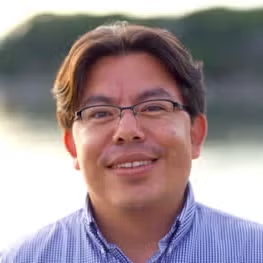
Mauricio Santillana, PhD, MSc is the director of the Machine Intelligence Research Lab in the Network Science Institute. He is a Professor in the Physics and Electrical and Computer Engineering Departments at Northeastern University. Mauricio enjoys working with public health officials and clinicians in the design of decision-making support tools by leveraging Internet-based data sources such as Electronic Health Records, Bedside Monitors, Google search trends, Twitter microblogs, News Alerts, Weather, and Human Mobility.Mauricio is a physicist and applied mathematician with expertise in mathematical modeling and scientific computing. He has worked in multiple research areas frequently analyzing big data sets to understand and predict the behavior of complex systems. His research modeling population growth patterns has informed policy makers in Mexico and Texas. His research in numerical analysis and computational fluid dynamics has been used to improve models of coastal floods, and to improve the performance of global atmospheric chemistry models. In recent years, his main interest has been to develop mathematical models to improve healthcare. Mauricio received a B.S. in physics with highest honors from the Universidad Nacional Autonoma de Mexico in Mexico City, and a master’s and PhD in computational and applied mathematics from the University of Texas at Austin. Mauricio first joined Harvard as a postdoctoral fellow at the Harvard Center for the Environment and has been a lecturer in applied mathematics at the Harvard SEAS, receiving two awards for excellence in teaching.
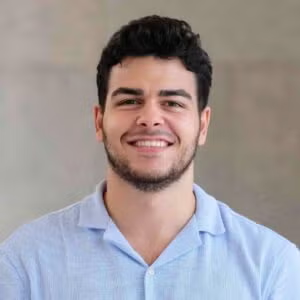
Raúl Garrido is a second-year Physics PhD student working with Professor Mauricio Santillana. He is interested in the application of physics and mathematical modeling in the study of epidemics and human behavior. Prior to joining NetSI, he received a BS in Physics and a minor in Applied Mathematics from Purdue University Northwest.

Julia Deichmann is a postdoctoral research fellow in the lab of Marc Lipsitch. Her research focuses on modeling antibody kinetics following SARS-CoV-2 vaccination and infection, and estimating the associated level of protection against further infection. She recently completed her PhD in Computational Biology at ETH Zurich in Switzerland, where she established models for blood glucose prediction in type 1 diabetes. In addition, Julia developed insulin treatment strategies to improve blood glucose control in the context of exercise. Prior to her PhD studies, she received a BSc and MSc in Physics from RWTH Aachen University and Lund University.
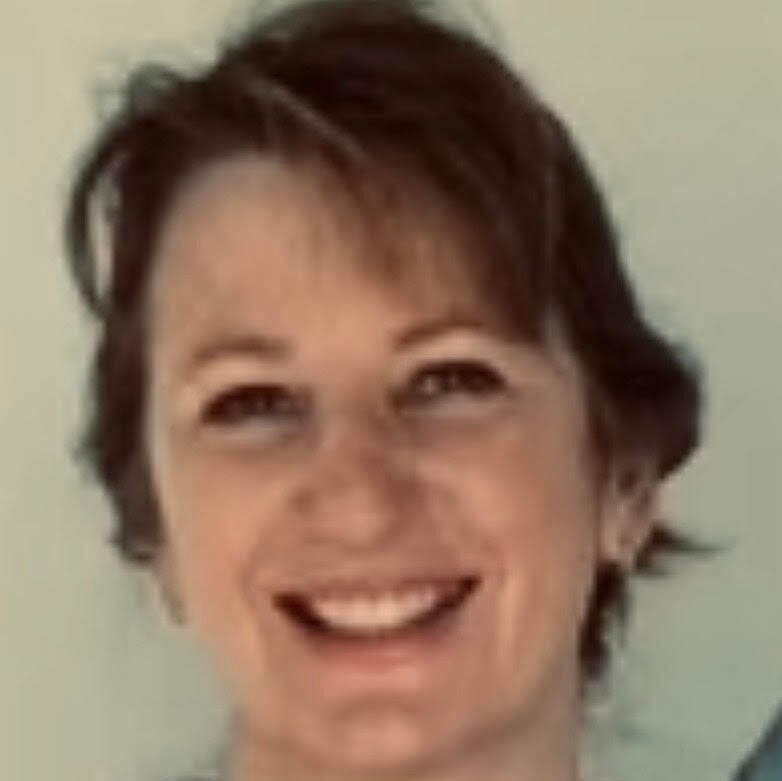
Dr. Lyn Finelli, PhD, received a doctoral degree in infectious disease epidemiology from the Columbia University School of Public Health. She spent most of her career in the public sector at the United States (US) Centers for Disease Control and Prevention (CDC). Early in her CDC career, she was assigned to the New Jersey Department of Health where she was a staff epidemiologist and State Epidemiologist. Following this field experience, she relocated to Atlanta and assumed responsibility for surveillance in the Division of Viral Hepatitis. She transitioned to the Influenza Division in 2006, and managed a team responsible for epidemiologic research, national surveillance, and novel and seasonal influenza outbreak investigations. During the 2009 H1N1 influenza pandemic, she led the epidemiology response for the US, and along with a team of more than 250 scientists helped describe the epidemiology of pandemic H1N1 influenza. In May 2015, Dr. Finelli joined Merck Research Labs where she and her team designed and conducted outcomes research studies to support vaccines in early and late development. In 2023, Dr. Finelli departed Merck Research Labs and since that time has been an independent consultant at Beacon Epidemiology Associates, LLC. She has served on national and international scientific boards and steering committees and has co-authored more than 300 peer-reviewed publications.
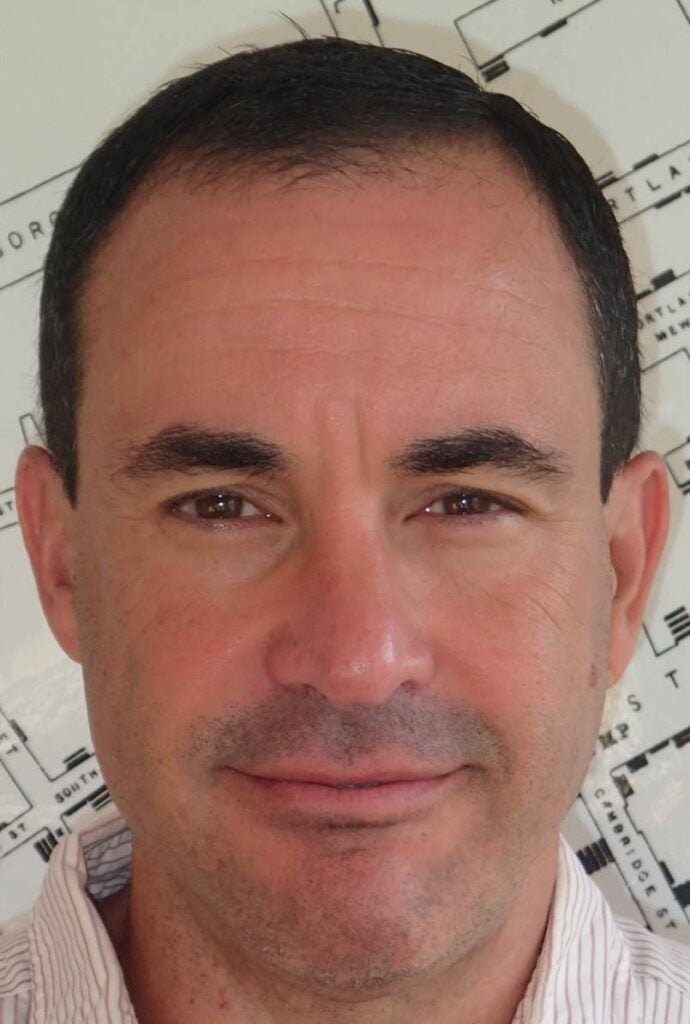
Gregg Gonsalves is an Associate Professor in the Department of the Epidemiology of Microbial Diseases at Yale School of Public Health. His work focuses at the intersection of substance use and infectious diseases using a variety of quantitative methods to look at predicting, detecting and managing disease outbreaks among people who use drugs.

Katherine Hsu is the Medical Director for the Division of STD Prevention & HIV/AIDS Surveillance, Massachusetts Department of Public Health, and the Director of the Ratelle STD/HIV Prevention Training Center, one of eight STD clinical training centers funded by the Centers for Disease Control and Prevention. She is also Professor of Pediatrics and Attending Physician in Pediatric Infectious Diseases at Boston University Medical Center. Dr. Hsu graduated from Brown University School of Medicine in 1995, completed pediatric residency at Columbia-Presbyterian Medical Center in 1998, and completed fellowship in Pediatric Infectious Diseases at the Boston University Medical Center in 2001. She also completed a second STD Prevention Fellowship jointly sponsored by the Association of Teachers of Preventive Medicine and the Centers for Disease Control and Prevention in 2003, and received her Masters in Public Health in Epidemiology from the Boston University School of Public Health in 2005.
She was a recipient of the Massachusetts Infectious Disease Society’s Edward H. Kass Award for Clinical Excellence During Fellowship in 2001. She is board certified in the areas of Pediatrics and Pediatrics Infectious Diseases, and is a Fellow of the American Academy of Pediatrics.
Dr. Hsu’s research interests include vaccine-preventable diseases and prevention of sexually transmitted infections, and she has published in various scientific journals, including Vaccine, Archives of Pediatrics and Adolescent Medicine, Pediatric Infectious Disease Journal, Sexually Transmitted Diseases, Clinical Infectious Diseases, Lancet HIV, PLoS Medicine, American Journal of Preventive Medicine, American Journal of Epidemiology, and American Journal of Public Health.

Jeff Imai-Eaton is an Associate Professor in Epidemiology in Harvard T.H. Chan School of Public Health. He holds an Master’s degree in Statistics from the University of Washington and PhD in Infectious Disease Epidemiology from Imperial College London. His research focuses on developing new mathematical models, statistical methods, and surveillance tools to characterize HIV epidemic trends, transmission dynamics and the demographic impacts of HIV, particularly in sub-Saharan Africa. Eaton co-chairs the UNAIDS Reference Group on Estimates, Modelling and Projections, a technical advisory group that provides scientific guidance to UNAIDS and partner organizations on the data, methods, and tools used to quantify the global HIV epidemic. His team in the MRC Centre for Global Infectious Disease Analysis at Imperial College London develops software tools used annually by national HIV programmes to produce national and subnational epidemiologic estimates to guide their response to HIV, in collaboration with UNAIDS, PEPFAR, Global Fund, CDC, and other organizations. He has a longstanding interest in demographic surveillance, population cohort studies, and methods for collecting and analysing longitudinal data. Key collaborations include with the Manicaland Centre for Public Health Research in eastern Zimbabwe and the ALPHA Network of population HIV cohort studies.

Reese Sy leverages her expertise in epidemiological research and methodological innovation to inform decision-making, enhance patient safety throughout the drug lifecycle, and support regulatory submissions to the FDA, EMA and other agencies globally As Director in Global Medical Epidemiology at Pfizer. Reese has over 10 years of experience in epidemiology, spanning academic, pharmaceutical, and government sectors. Prior to joining Pfizer, she conducted infectious disease research at Boston University School of Public Health using statistical and mathematical modeling approaches. She focused on leveraging large sources of real-world data, such as healthcare administrative data, routinely collected surveillance data, smartphone mobility data, and social media data. She also led research efforts in the SARS-CoV-2 Rapid Antigen Mathematical Modeling Consortium as part of the WHO ACT-Accelerator, which provided evidence on the optimal use of rapid antigen tests to inform resource allocation and global policy. She holds a PhD in Epidemiology from Boston University School of Public Health, a MS in Epidemiology from Columbia University and a BA in Molecular Biology and Biochemistry from Wesleyan University.
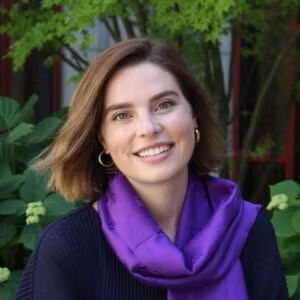
Katherine Budeski is a Population Health Sciences PhD student concentrating in infectious disease epidemiology advised by Dr. Marc Lipsitch. Before coming to Harvard University, Budeski received a Master of Science in Modeling for Global Health from the University of Oxford and a Master of Management Science in Global Affairs from Tsinghua University as a Schwarzman Scholar. Previously, Budeski worked in Washington, DC for several years addressing the risks posed by large-scale biological events and rapid advances in biotechnology while strengthening global biosecurity and pandemic preparedness. Her research interests include public health preparedness, response, and health systems resiliency during outbreaks amid the climate crisis and growing healthcare disparities. Budeski holds a Bachelor of Science in Biochemistry from Montana State University.
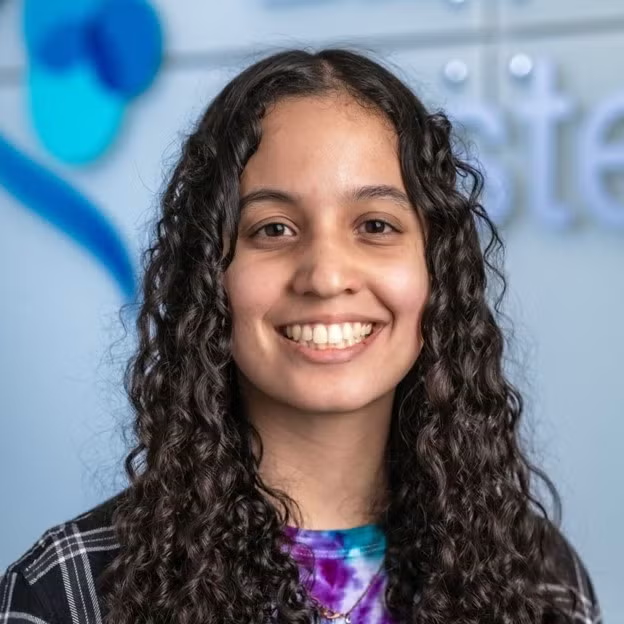
Indra Gonzalez Ojeda completed her Bachelor’s degree in Chemistry at the University of Puerto Rico Mayaguez, where she fell in love with applying quantitative frameworks to biological systems. This led her to start a PhD in Biophysics here at Harvard, with a special interest in microbial evolution and genomics. Outside of science, her hobbies include going outside to enjoy the warmth (when it exists) and complaining about the cold (when the warmth abandons us). She also likes spending time with her very chaotic cat named Psi.
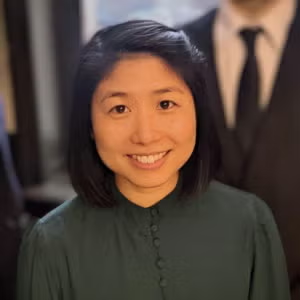
Thi Mui Pham is a postdoctoral research fellow in the Lipsitch Lab and Grad Lab, interested in understanding driving factors in explaining infection and antimicrobial resistance trends. Her research focuses on defining these trends for health care-associated pathogens using data from the U.S. Veterans Health Administration and the Alberta Health Services in Canada, and developing mathematical models to study the relationship between antibiotic use and resistance. Mui studied mathematics at RWTH Aachen in Germany. She completed her PhD at the University Medical Center Utrecht in the Netherlands where she developed mathematical models to study the transmission dynamics of P. aeruginosa in intensive-care units. In addition, she evaluated the impact of various interventions on the transmission of SARS-CoV-2 in the community and in hospitals. Besides work, she enjoys rock climbing, hiking, and Lindy Hop dancing.

Domonique Reed received a PhD in Epidemiology from Columbia University. Domonique’s research primarily focuses on understanding the impact of interpersonal relationships on risk behaviors and engagement in HIV prevention services for adolescent girls and young women. Her dissertation research, titled “Moving Beyond the Individual: A Data-driven Approach to Assessing the Multi-level Determinants of HIV among Adolescent Girls and Young Women in Sub-Saharan Africa” was a multi-pronged study that applied novel data science methods to better understand the multi-level drivers of HIV risk in this vulnerable population. As a Yerby Fellow, she will be mentored by Dr. Jeffrey Imai-Eaton and will expand on her work in data integration to characterize gaps in sub-Saharan African populations that are missing from HIV programming that go beyond standard demographic stratification, such as age and sex. In her free time, she enjoys long distance running, traveling, and spending time with family.
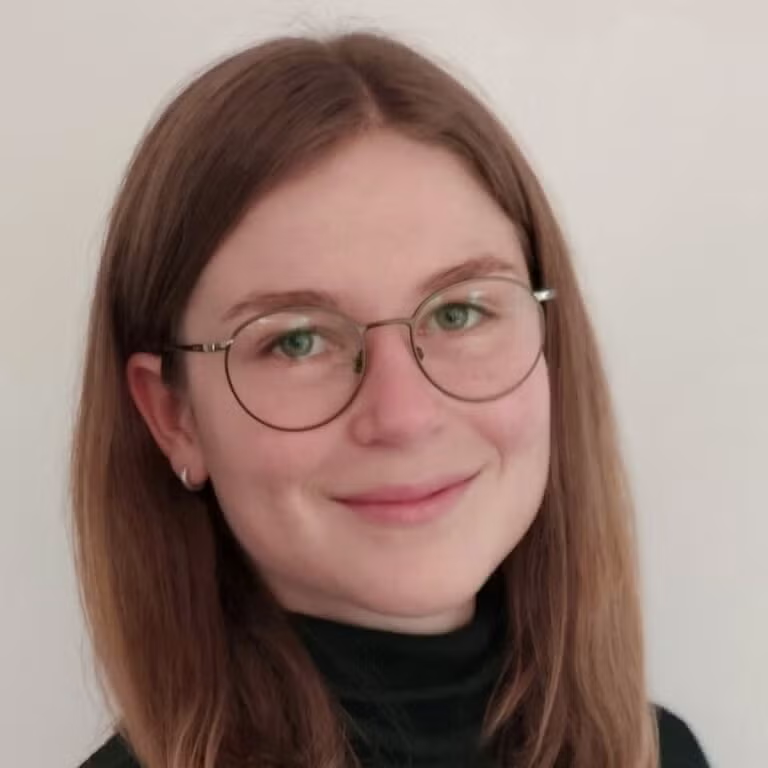
Julia Deichmann is a postdoctoral research fellow in the lab of Marc Lipsitch. Her research focuses on modeling antibody kinetics following SARS-CoV-2 vaccination and infection, and estimating the associated level of protection against further infection. She recently completed her PhD in Computational Biology at ETH Zurich in Switzerland, where she established models for blood glucose prediction in type 1 diabetes. In addition, Julia developed insulin treatment strategies to improve blood glucose control in the context of exercise. Prior to her PhD studies, she received a BSc and MSc in Physics from RWTH Aachen University and Lund University.
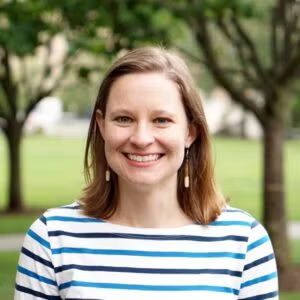
Abby Campbell Wong is the senior project manager for a CDC-funded award focusing on mathematical modeling development to improve national and global responses to emerging health threats. She also spearheads strategic planning, fundraising and development efforts at CCDD, working closely with leadership. Abby brings deep connections to the global and public health community at Harvard and beyond, with past roles at the Harvard Global Health Institute and Global Health Delivery Project at Harvard Medical School. Abby has also led department administration in the sciences at UC Santa Cruz. She received a master’s degree from the University of Pennsylvania and a bachelor’s degree from the College of Saint Benedict, and has worked in France, Senegal and Haiti.

Caroline Thomas is the research program coordinator for the CCDD at Harvard Chan School. She received a BSA in Neuroscience from the University of Texas at Austin where she completed a thesis investigating the efficacy and epidemiology of employing pharmacotherapies for pediatric ADHD. Caroline has conducted clinical research investigating the link between cognition and emotion, and managed the delivery of large-scale public health programming to undergraduate students. In her free time, she enjoys embroidery, tennis, and live music.